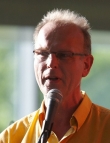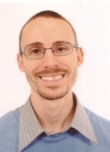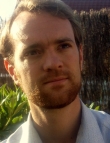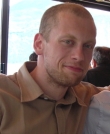Tutorials Abstracts and Speakers
Tutorial 1: Designing technical action research and generalizing from real-world cases
Download slides (PDF)
Roel Wieringa, University of Twente, the Netherlands
A case study is a study of a very small sample of phenomena in the real world, in order to draw lessons about these phenomena in general. In observational case studies, the researcher studies the phenomena without intervening in them. In action research studies, by contrast, the researcher intentionally intervenes in the phenomena in order to learn about the effects of this intervention in the real world. Technical action research (TAR) is a special case of this, in which a design researcher develops an artifact, such as a method, technique or notation, and then applies this artifact to solve a real-world problem in practice, in order to learn how the artifact behaves in the real world. This tutorial gives examples of TAR and discusses the use of this research approach with the audience. We then discuss the role of theory in TAR, and how we can use theory to generalize from a small set of observations in a case study.
 |
Roel Wieringa is Chair of Information Systems at the University of Twente, the Netherlands. His research interests include requirements engineering, conceptual modelling, and research methodology for software engineering and the design sciences. He has written two books, Requirements Engineering: Frameworks for Understanding (Wiley, 1996) and Design Methods for Reactive Systems: Yourdon, Statemate and the UML (Morgan Kaufmann, 2003.
Roel Wieringa has been head of the Computer Science Department of the UT since 2009 and has been scientific director of the School for Information and Knowledge Systems (SIKS, www.siks.nl), that provides advanced education to all Dutch Ph.D. students in information and knowledge systems, from 2006 to 2011. He serves on the editorial board the Requirements Engineering Journal and of the Journal of Software and Systems Modeling and has been a chair or member of numerous conference program committees. Find more information at http://www.cs.utwente.nl/~roelw |
Tutorial 2: Full model-driven practice: from requirements to code generation
Download slides (PDF)
Oscar Pastor, Universitat Politecnica de Valencia, Spain
Sergio Espana, Universitat Politecnica de Valencia, Spain
This tutorial will show how to cover the whole software development lifecycle a model-driven way: from RE to software-code generation, focusing on the necessary transformations. By successfully integrating business process modelling (BPM), requirements engineering (RE) and object-oriented conceptual modeling, researchers and practitioners can leverage MDD capabilities. As a practical application a specific method and notations are explained, but the ultimate goal is that participants are able to apply this knowledge to their own contexts, to either industrial practice or academic research.
 | Oscar Pastor is PhD, full professor and director of the Research Center on Software Production Methods (ProS) at the Universitat Politecnica de Valencia (Spain). He was a researcher at HP Labs, Bristol, UK. He has published 200+ research papers in conference proceedings, journals and books, received numerous research grants from public institutions and private industry, and been keynote speaker at several conferences and workshops. Chair of the ER Steering Committee (SC), and member of the SC of conferences such as CAiSE, ICWE, CIbSE and RCIS. His research interests span conceptual modelling, web engineering, RE, information systems and MDD. He created the object-oriented, formal specification language OASIS and the corresponding software production method OO-Method. He led the research and development of the company CARE Technologies (founded in 1996), which has developed a state-of-the-art MDA-compliant conceptual model compiler named Integranova, a tool that produces a final software product starting from a conceptual model that specifies system requirements. He is currently leading a multidisciplinary project bridging the disciplines of information systems and bioinformatics, aimed at developing tools for interpreting and exploiting the Human Genome information from a conceptual modelling perspective. | |
 | Sergio Espana is PhD and full researcher at the Research Center on Software Production Methods, Universitat Politecnica de Valencia (Spain). He has published in top RE and conceptual modelling conferences. He is member of the programme committee of international conferences (e.g. PoEM) and workshops (e.g. ONTOSE, VORTE). His main research interests include information systems, conceptual modelling, RE, interface design, empirical software engineering and model transformations. He is co-author of Communication Analysis, an information systems RE method that can be applied stand-alone or within an MDD framework. |
Tutorial 3: Improvisational Theater for Information Systems: an Agile, Experience-Based, Prototyping Technique
Download slides (PDF)
Martin Mahaux, University of Namur
Patrick Heymans, University of Namur
Through actually playing improvisational theatre games in groups, participants will be given the chance to feel what it takes to innovate in teams, and will experiment with a technique that enables rapid scenario generation, producing real-time creative experience-centered prototypes. It's definitely participative, fun, refreshing, and different from any tutorial you have ever been attending: don't expect to see any slide! While being self-contained, this tutorial complements well with a tutorial previously given at RCIS by the same speakers.
 | Martin Mahaux is currently doing a PhD thesis at the University of Namur on the topic of collaboration and creativity. He started his career as an IT consultant, where he enjoyed various positions in the IS development life cycle. He is the main developer of the improv based training technique that is the subject of this mini-tutorial. Martin published about it during his free time in IEEE Software and RE conference. He also works on methods for assessing sustainability of socio-technical systems. More on http://info.fundp.ac.be/~mma/wordpress/ | |
 | Dr. Patrick Heymans is full professor of IS at University of Namur, and visiting researcher at INRIA Lille. He is founding member and co-director of the PReCISE research centre (50 researchers) where he leads the requirements engineering and software product line efforts. He has supervised 9 PhD theses and authored 85 peer-reviewed papers. He is a regular referee for top IS journals and conferences, and associate editor of IEEE TSE. Patrick regularly acts as an advisor and trainer for IT companies. |
Tutorial 4: Ontological Foundations for Conceptual Modeling with Applications
Download slides (PDF)
Giancarlo Guizzardi, Computer Science Department at the Federal University of Espirito Santo, Brazil
The main objective of this tutorial is to introduce researchers to the theory and practice of advanced conceptual modeling through the application of a new emerging discipline named Ontology-Driven Conceptual Modeling. In this discipline, theories coming from areas such as Formal Ontology in philosophy, but also Cognitve Science, Philosophical Logics and Linguistics are employed to derive engineering tools (e.g., modeling languages, methodologies, design patterns, model compilers and simulators) for improving the theory and practice of Conceptual Modeling. In particular, here, the expressiveness and relevance of these theories and derived tools are demonstrated through their application to solve some classical and recurrent conceptual modeling problems concerning the well-founded representation of: classification and taxonomic structures, part-whole relations, intrinsic and relational properties, formal and material associations, association specialization, attribute value spaces, roles and events.
 | Giancarlo Guizzardi obtained a PhD degree (with the highest distinction) from the University of Twente, in The Netherlands with a thesis entitled "Ontological Foundations for Structural Conceptual Models". Since 2003 he has been a Visiting Scientist, Research Collaborator and Associated Researcher at the Laboratory for Applied Ontology (LOA), Institute for Cognitive Science and Technology (ISTC), in Trento, Italy. He is currently an Associate Professor at the Computer Science Department at the Federal University of Espirito Santo, in Vitoria, Brazil, where he co-leads the Ontology and Conceptual Modeling Research Group (NEMO). He was a Program Committee co-chair of the 14th IEEE International Conference on Enterprise Computing (EDOC) and is currently the Program Committee co-chair of the 8th International Conference on Formal Ontology in Information Systems (FOIS). He is an editorial board member of journals such as the Applied Ontology, the Semantic Web Journal, and the International Journal of Information Systems Modeling and Design (IJISMD). He has 15 years of experience with Conceptual Modeling and Ontology Engineering, both in academia and in industrial projects, in areas such as digital journalism and media content management, telecommunications, e-GOV, petroleum and gas, among others. Finally, he is a member of the executive council of the International Association for Ontologies and Applications (IAOA) and a co-chair of the IAOA SIG on Ontology and Conceptual Modeling. |
Call for Mini-Tutorial Proposals
^^^ Back to top